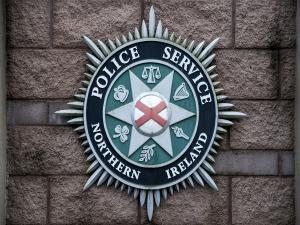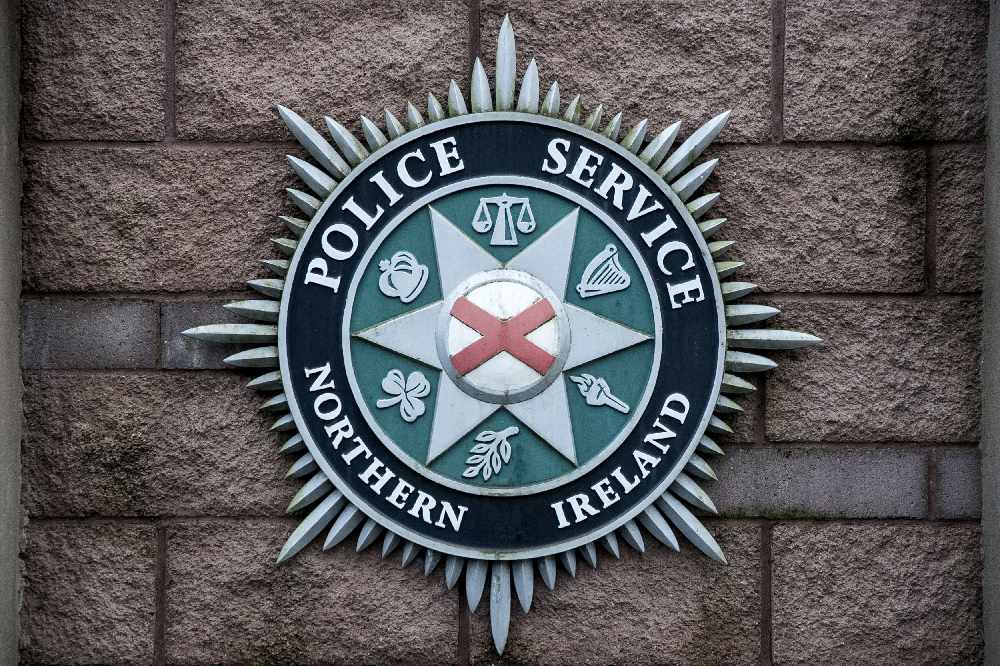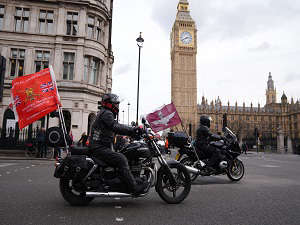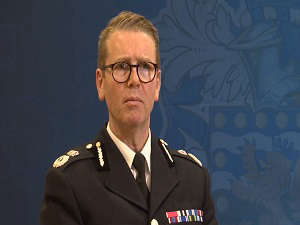
Q Radio News/PA
A police officer was justified in using lethal force in the first fatal shooting carried out by the PSNI, a coroner has said.
However, Judge Philip Babington said that a police operation which led to the death of Neil McConville “was not planned and controlled in such a way that it minimised to the greatest extent possible the need to recourse to lethal force”.
Mr McConville, 21, a father of two, was killed as he tried to evade police in a car near Lisburn in April 2003.
Delivering his findings into the long-running inquest at Laganside courts, Judge Babington said that had force not been used, a police officer on the ground could have been killed or suffered serious injury.
He told the hearing: “Mr McConville died due to a gunshot wound to his chest.
“At the time he sustained the gunshot wound he was driving a (Vauxhall) Cavalier car on the Crumlin Rd in Glenavy, Co Antrim.”
The judge said police had been involved in an operation to stop the car that Mr McConville was driving.
He said: “The way in which the command to stop the Cavalier was given was reasonable and proper, as was the clarification sought that the vehicle could be stopped from behind.
“Police attempted to stop the Cavalier from behind but there was contact between the Cavalier and the police vehicle and the Cavalier did not come to a permanent stop.
“The deceased tried to engage forward gear and drive the Cavalier away from the scene.
“It was clear that he would have driven over Mr Paul Taylor and either killed him or caused him serious injury if he had been successful.”
Judge Babington said an officer, referred to as HHU129, then opened fire.
He said: “HHU129 discharged his MP5 weapon in automatic mode although it was his intention to discharge one aimed shot, believing that the weapon was on semi-automatic mode, otherwise single-shot mode.
“HHU129 fired all three shots which were discharged during the incident from a position adjacent to the driver’s window of the Cavalier.
“At the time the muzzle of the weapon was less than one metre away from the deceased.”
The judge said Mr McConville had received appropriate first aid care before he was pronounced dead at Lagan Valley Hospital.
He added that his injuries were such that it was unlikely a fatal outcome could have been prevented.
Judge Babington said there were “numerous failings” in an investigation carried out by the Police Ombudsman into the police operation which led to Mr McConville’s death.
He said: “The (police) operation was not planned and controlled in such a way that it minimised to the greatest extent possible the need to recourse to lethal force.”
But the judge added: “HHU129 had an honest belief that it was necessary for him to use force.
“The level of force used by HHU129 was no more than was absolutely necessary and therefore HHU129 was justified in using lethal force as he did on the day in question.”
Judge Babington concluded: “I know that it will soon be 19 years since Neil’s death and it goes without saying that it is far too long to wait for an inquest.”
Lawyer for the McConville family Padraig O Muirigh said: “The coroner has identified a number of significant failings in the policing operation on the day in question, in particular, in relation the failure to minimise the need to recourse to lethal force.
“The McConville family have always maintained that Neil’s death was preventable.
“He was a young father of two and a much-loved son, brother, father and partner.
“Our clients are disappointed at the coroner’s findings in relation to the use of force by officer HHU129.”
He added: “These are lengthy findings, amounting to over 100 pages.
“The McConville family will need time to digest these detailed findings and we will meet with them in the comings days or weeks to discuss the coroner’s ruling in more detail.”
In a statement, PSNI Assistant Chief Constable Alan Todd said: “We recognise that whatever the circumstances, a man lost his life and we understand that this is a difficult time for all concerned.
“We acknowledge today’s judgment and will now take time to consider the detail in full.
“Policing has changed considerably in the past 19 years, as have our operational procedures relating to firearms operations, however where there are lessons to be learnt we will seek to do so and implement any further changes required.”



 Bikers to descend on Westminster for veterans protest against Legacy Act repeal
Bikers to descend on Westminster for veterans protest against Legacy Act repeal
 Guidance sought over future of colourful parakeets in Belfast park
Guidance sought over future of colourful parakeets in Belfast park
 Woman released after questioning over pipe bombs in Co Down
Woman released after questioning over pipe bombs in Co Down
 Suspended chief constable will not be prosecuted over alleged sexual offences
Suspended chief constable will not be prosecuted over alleged sexual offences
 MI5 files not deliberately withheld from Stakeknife probe, review concludes
MI5 files not deliberately withheld from Stakeknife probe, review concludes